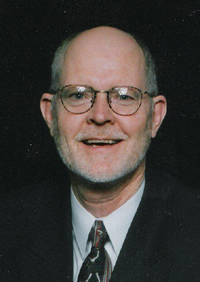Texas Teachers Working More, Enjoying It Less--SHSU Study
 |
David Henderson |
In the past 26 years, according to a recent survey of Texas
teachers, the number of those who work extra jobs has increased
by 50 percent during the school year and 40 percent during the
summer.
These results were reported Friday by David Henderson, professor
of education at Sam Houston State University, and his son,
Travis Henderson, coordinator of staff development for the
Texas prison system's Windham School District.
The Hendersons presented the results of the 14th biennial
study entitled "Teachers, Moonlighting, and Morale"
to a meeting of the Texas State Teachers Association Friday
in Austin. Their findings came from a random survey taken
from a list of 70,000 TSTA members, and was funded by the
association.
The survey was conducted in February when questionnaires
were mailed to a sample of 673 teachers. A total of 225 (33
percent) responded.
"Although about 5 percent of all U. S. workers hold
second jobs, 300,000 teachers, or 17 percent of America's
2 million teachers, were employed outside the school system
during the school year," said Henderson.
"Moonlighting adversely affects teacher recruitment,
job stress, and teacher efficiency. Changes such as better
salaries, merit pay, and productive summer employment are
suggested."
The study indicates that far more Texas teachers have extra
jobs than the national average. More than one in three (33%)
said they had extra jobs during the school year and more than
two out of five (42%) work during the summer.
When the moonlighting study was started 26 years ago, the
figures were 22 percent for the school year and 30 percent
in the summer.
Some of the extra jobs listed by respondents included tutor
(14), college teacher (6), farm and ranch (3), construction
(2), office cleaning, baby sitter, landscaping/gardening,
freelance writer and cashier.
One thing that has changed little in that time is the number
of teachers who say that moonlighting has a detrimental effect
on their performance in the classroom. In 1980 64 percent
so indicated, compared to 67 percent this year.
More than four out of five (82 percent) of those who moonlight
said they would quit if their teaching salary were adequate.
One thing that has changed greatly in 26 years is the average
salary of those responding. In 1980 it was $14,113 and in
2006 $42,654. Nevertheless, in that first study just over
three out of eight (38 percent) said they were "seriously
considering" leaving the teaching profession, while almost
half (46 percent) gave that response this year.
Asked for their opinion on the number one problem in schools,
more than half (53 percent) listed discipline and almost two
out of five (39 percent) said it was excessive paperwork.
"I hope that this information will actually have some
sort of impact on improving the income of educators in Texas,"
one respondent said of the study.
"Either our lawmakers are woefully unaware of the state's
needs, drastically callous to the state's needs, or intent on
crippling PUBLIC education to ensure its destruction for motives
undisclosed and truly devious. I know which one I believe!"
—END—
See also: Teachers Comment
on "Teachers, Moonlighting and Morale."
SHSU Media Contact: Frank
Krystyniak
April 28, 2006
Please send comments, corrections, news tips to Today@Sam.edu.
|


